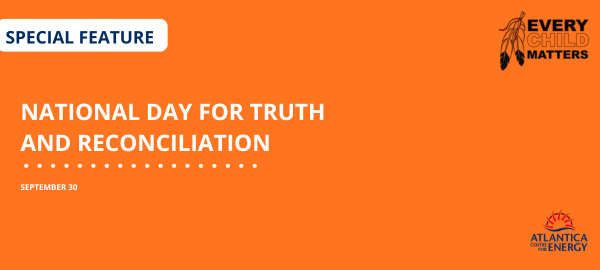Discover events, books, and practical steps employers can take to honour Truth and Reconciliation Day and embed reconciliation year-round
Overview
Recognizing Orange Shirt Day and the National Day for Truth and Reconciliation (NDTR) is a necessary step in acknowledging the injustices faced by Indigenous communities in Canada.
Both observances take place on September 30th, to honour the experiences of Indigenous children who were taken from their families and placed in residential schools, where many suffered abuse and cultural erasure. This day is a reminder of the ongoing impacts of these schools and the resilience of survivors.
It is about acknowledging a truth that has too often been ignored. For employers, it’s a chance to model what it means to listen, to learn, and to act.
Why and how companies can acknowledge this day:
When a workplace chooses to acknowledge this day, it sends a clear message: we value respect, inclusion, and reconciliation. It shows Indigenous employees and partners that their history matters. It also encourages all employees to think about how reconciliation fits into their daily lives and work.
Observing the day shouldn’t feel like “checking a box.” Instead, it can be the start of building a workplace culture that takes reconciliation seriously. Here are a few practical ideas:
- Keep participation voluntary. This day can bring up painful emotions. Allow employees to engage in ways that feel right for them.
- Host learning sessions. Organize workshops, panels, or webinars to educate staff about Orange Shirt Day, residential schools, and their ongoing impacts.
- Allow flexibility. Offer time off or flexible scheduling so Indigenous employees can attend ceremonies and community events, and so all staff have space to reflect.
- Share resources. Highlight books, films, podcasts, or courses such as 4 Seasons of Reconciliation. Use newsletters or social channels to spotlight Indigenous employees, partners, or initiatives.
- Invite Indigenous voices. Bring in an Elder, survivor, or speaker to share lived experience. These conversations often leave a stronger impact than written materials alone.
- Wear orange. Encourage staff to wear orange shirts as a visible sign of solidarity and consider holding a moment of silence to honour survivors and the children who never came home.
Moving beyond just one day:
In the 94 calls-to-action laid out by the Truth and Reconciliation Commission of Canada, the last act is specifically directed toward businesses. It asks the corporate sector to take responsibility for reconciliation in the workplace.
For employers, this begins with policies. Policies are not just paperwork; they are signals of what an organization values and protects. Embedding reconciliation into policies ensures that commitments are consistent, not just symbolic. Here are some practical steps to consider:
- Update anti-racism and inclusion policies. Ensure your policies explicitly address the unique challenges and systemic discrimination faced by Indigenous communities. Include language that supports cultural sensitivity and promotes allyship.
- Support indigenous education and career growth. Offer tuition reimbursement, flexible schedules for those studying part-time, or mentorship programs that build skills. Helping Indigenous employees grow in their careers is reconciliation in action.
- Buy from Indigenous businesses. Partner with Indigenous suppliers, contractors, and artists. Purchasing items such as Orange Shirt Day merchandise, supports Indigenous entrepreneurs and communities.
- Allocate resources to Indigenous causes. Consider donations, sponsorships, or partnerships with Indigenous-led charities, events, or organizations. Even small contributions can support cultural programming, education, or community development.
- Promote Indigenous voices internally. Share personal stories from Indigenous employees through spotlights, blog posts, or social media. This not only amplifies their voices but also helps other employees learn from lived experience.
Events happening around you:
- Healing Walk – Saint John, NB Sept 28, 2025: A community walk for reflection and healing, starting in Saint John.
- Truth and Reconciliation Week (Virtual, Canada-wide) Sept 29 to Oct 3, 2025: Online programming by the National Centre for Truth and Reconciliation, open to schools, workplaces, and individuals.
- Screening: You can call me Roger Imperial Theatre, Saint John, NB – Sep 30, at 7 pm followed by a virtual Q/A with the filmmaker.
- Every Child Matters Events – Mount Allison University, Sackville, NB Sept 29–30, 2025: Flag raising and a day of reflection on campus.
- Commemorative Ceremony – UNB Fredericton & Saint John Sept 30, 2025, 10 a.m.: Ceremonies on both campuses honour survivors and children who never returned home, with smudging, orange heart reflections, and livestream option.
- Wabanaki Healing Garden Grand Opening – UNB Fredericton Sept 30, 2025, 1 p.m.: A sacred space for renewal and reflection, created with Wabanaki Elders and the UNB community.
- National Day for Truth and Reconciliation Ceremony – Charlottetown, PEI Sept 30, 2025: Official ceremony with Mi’kmaq leadership, survivor reflections, and community gathering.
- Pier 21 Program – Halifax, NS Sept 30, 2025: Indigenous-created short films and exhibits in partnership with the National Film Board.
- Mi’kmaw Native Friendship Centre – Halifax, NS Sept 30, 2025: Youth-led activities, cultural programming, and a community gathering.
- Fancy Shawl Dance – Halifax Stanfield Airport, NS Sept 30, 2025: Traditional dance performance from 1–2 p.m. in the terminal.
Where to learn more:
Here are some resources to help you and your team deepen understanding:
- Truth and Reconciliation Commission: Calls to Action
- National Centre for Truth and Reconciliation
- National Indian Residential School Crisis Line (1-866-925-4419)
Books
- The Inconvenient Indian by Thomas King
- Five Little Indians by Michelle Good
- Indian Horse by Richard Wagamese
- The Marrow Thieves by Cherie Dimaline
Videos

